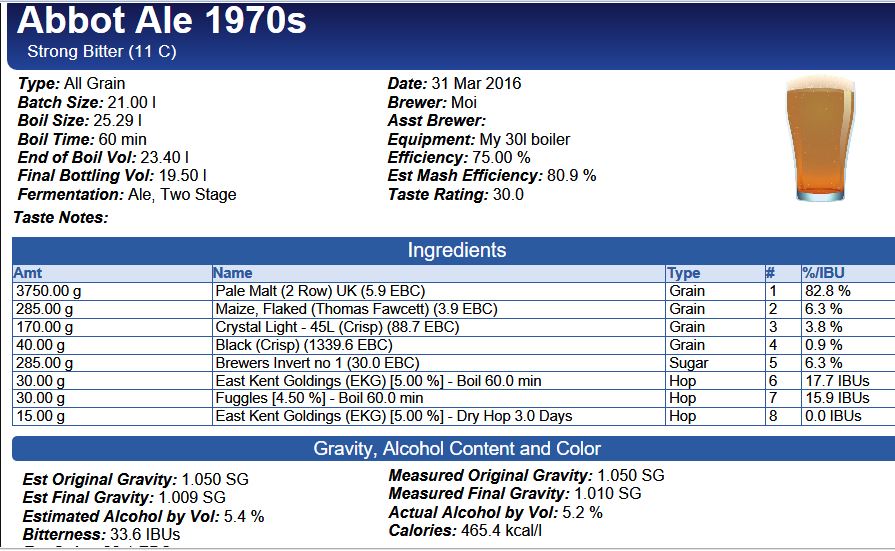deere322
Former Sloper
3x Gold
OG 1.040
FG 1.008
4.3 abv
Really digging the London Ale III yeast in the sample.
Taste is bitter, biscuity toffee, fruity with a dry finish.
Can't wait for carb.
View attachment ImageUploadedByHome Brew1463185869.000320.jpg
OG 1.040
FG 1.008
4.3 abv
Really digging the London Ale III yeast in the sample.
Taste is bitter, biscuity toffee, fruity with a dry finish.
Can't wait for carb.
View attachment ImageUploadedByHome Brew1463185869.000320.jpg





